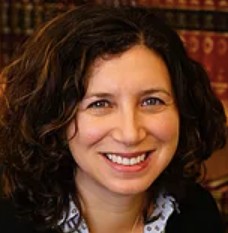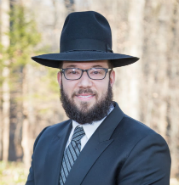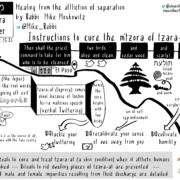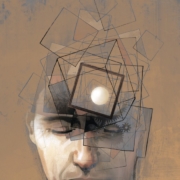Coming Closer Through Protest / Graceful Masculinity – Balak
Part of a periodic Torah series on graceful masculinity and Jewish values.

וַיִּשָּׂ֥א מְשָׁל֖וֹ וַיֹּאמַ֑ר נְאֻ֤ם בִּלְעָם֙ בְּנ֣וֹ בְעֹ֔ר וּנְאֻ֥ם הַגֶּ֖בֶר שְׁתֻ֥ם הָעָֽיִן׃
He declaimed his parable and said: ”The words of Bilaam son of Beor, the words of the man who is shetum ha-ayin .” (Numbers 24:3)
Bilaam, the famous Midianite prophet, is described as shetum ha-ayin, understood by some commentaries as sharp-sighted, and by others as half-blind. Indeed, what Bilaam sees and does not see is critical to his appraisal of the people of Israel.
At first, never having laid eyes on Israel, he agrees to try and curse them. Later, having caught a glimpse of Israel, he is moved to bless them. Then gazing on them fully, he blesses them so powerfully that his words become the start of our daily prayers – mah tovu ohalecha Yaakov, how goodly are your tents, Jacob.
This trajectory is what we always hope for – that when we know each other better, we will be less prejudiced and more loving. The Torah is filled with examples of how it is easier to hate from afar. Joseph’s brothers see him from a distance and it is then that they plot to get rid of him. Esav wants to kill Jacob when he is not with him, but then when he actually confronts him he embraces and kisses him.
Yet Bilaam is not understood by our tradition as an example of successful bridge-building. His prophecies, though gorgeous, are understood to lead to Israel’s subsequent sin at Shittim. As the midrash in Devarim Rabbah 1:2 explains:
One who protests/reproves a person will afterward find more grace than one who speaks with a smooth tongue (Proverbs 28:23).
One who protests/reproves – this is Moses . . .
Find more grace – as it is said, You have found grace in My eyes (Exodus 33:12)
Than one who speaks with a smooth tongue – this is Bilaam who flattered Israel with his prophecies and their hearts filled with hubris and they sinned in Shittim.
Although Bilaam sees Israel and speaks beautifully about them, the Midrash complains that he does not authentically engage with them. His words are seen as superficial flattery that inflates Israel’s sense of self and leads them to a gruesome fall. By contrast, Moses has a trustworthy relationship with Israel, filled with love, expectations, and accountability.
Honest engagement is often uncomfortable. We hear and speak unpleasant truths. Yet the midrash says that one who protests/reproves finds more chen than who elides the discomfort. According to the midrash, these real, if awkward, conversations are the essence of chen. True grace requires an investment in growth.
Bilaam’s name is parsed by the Talmud as B’li Am, free from people. As a quintessential outsider, Bilaam had a unique perspective on the people of Israel. Had he been willing to do the emotional labor of having the difficult conversations with them, he would have helped them be better aware of themselves and advanced a more just coexistence.
Mishnah Avot 5:19 teaches that Bilaam is emblematic of the evil eye. He didn’t view himself as part of the collective, nor did he feel responsible for anyone else. The Torah teaches that the proper perspective is to see people as worthy of effort and investment as part of humanity’s development and evolution to a more perfect society. In doing so, we are partnering with G-d in the ongoing process of naese adom, “Let us make a person”. Humanity is more idyllically formed when we work together to elevate each other towards communal perfection.
The midrash in Bemidbar Rabbah 2:12 observes the attitudinal difference that Moses and Bilaam have towards people. Biliam compares us to dust (Numbers 23:10), whereas Moses describes us as the stars in the sky (Deuteronomy 1:10). While both dust and stars are too numerous to count, Moses’s blessing reflects the aspirational reality that the closer we get to people, like stars, the greater they appear.
At a time when many people are becoming mobilized to protest racial violence, police brutality, and LGBTQ inequality, we must be careful not to fall into Bilaam’s trap. We must expand beyond smooth slogans and superficial alliances and instead form deep coalitions based on relationship building and respectful dialogue. We must commit to working together with a deeper understanding of each other; listening tirelessly and consistently while devoutly showing up with a unifying love. Together, we can see one another more completely and stand up for each other more authentically, so that we may all be part of a more just world.
Discussion questions:
What are some ways to expand our relationships with communities that are different from our own?
Are there books or other sources of personal stories that have moved you to get more involved?
How would you advise someone who asks you why antisemitism exists and how to best respond to it?
What are some ways of framing rebuke in a loving way?


By Rabbis Wendy Amsellem and Mike Moskowitz.








